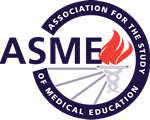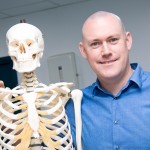I joined two Dutch colleagues to run a pre-conference workshop called “The artist inside us all: creative tools for reflection on personal growth towards professionalism”. We used singing, drawing, poetry and upmarket Play-do to reflect on our own careers/lives as a way of introducing participants to exercises they could use with their students. Groups of three had packs of postcards and were asked to select one that spoke to their experience, ideally one where they could talk about something which had gone wrong. I modelled this by choosing one of three cards I had never seen before, made some self-revelatory comments but also highlighted areas which I had deliberately not discussed: this demonstrated the importance and possibility of safety for those taking part as well as conveying the message that teachers must be open if they are expecting learners to be open.
My other observations from the conference were:
- The Red Hot Chilli Pipers are brilliant. They performed in the Opening Ceremony.
- Only one workshop – and no papers – on teaching about diversity. Nothing on teaching about death, dying and bereavement.
- At AMEE Fringe, Menno de Bree reprised his TED talk. It’s called “On why your work does not make you happy” – available at https://www.youtube.com/watch?v=cA1mu9kDnjc
- Lisa Lipkin reminded us that nothing is more sustainable than a good story. What moves you moves your audience. Stories are the glue to keep numbers, facts and details in our brains. Good oral storytellers use visual language.
- Mona Siddiqui on diversity – “Not just to have a seat at the table but to feel comfortable in the chair”.
- Roger Kneebone used the painting by Barbara Hepworth, Concourse. It depicts an operating theatre where, although the focus of everyone present is on the patient, the patient is invisible. A good starting point for reflecting on the process of surgery. https://www.rcseng.ac.uk/support-our-work/heritage/successful-appeals/dame-barbara-hepworth-appeal (Scroll to end for image.)
- He also showed a short clip of a surgeon with his hand beside a patient’s liver saying “If you put your finger in here you can feel the er”. It was inexpressible, reduced simply to “er”. As one who tries to express what empathy and professionalism are, this inarticulate phrase was reassuring.
- In a professional identity session a student referred to a medical student and a “normal student”. There was not a flicker of a smile on a single face.
- A poster showed that the conscientiousness index works in Singapore – good news for our Durham colleagues, another associated punctuality with exam success. A third extolled the virtues of a “Simple Happiness Class”, claiming that simple happiness will change the world.
- A number of studies dispute the orthodoxy that empathy declines over the medical course.
- In a presentation on empathy a speaker showed a cartoon with a doctor saying “I know how you feel”…as an EXAMPLE of empathy!
- Granite is an unforgiving surface for a ceilidh.
- I am still sufficiently immature to smile when I see a poster from the University of Chihuahua.
Dr Bryan Vernon, School of Medical Education



 Dr Bryan Burford as project lead with Paul Paes, Gill Vance (all SME) and Felicity Hunter from Faculty Office have been awarded 2014/15 ULTSEC innovation funding to investigate “
Dr Bryan Burford as project lead with Paul Paes, Gill Vance (all SME) and Felicity Hunter from Faculty Office have been awarded 2014/15 ULTSEC innovation funding to investigate “


 Bateman, H., Thomason, J. M. and Ellis, J. (2015), Patient non-attendance: utilising clinical time. The Clinical Teacher. doi: 10.1111/tct.12405.
Bateman, H., Thomason, J. M. and Ellis, J. (2015), Patient non-attendance: utilising clinical time. The Clinical Teacher. doi: 10.1111/tct.12405.